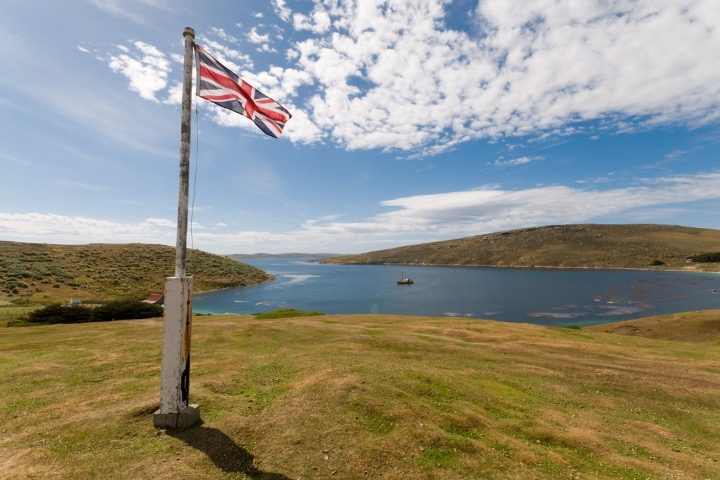
A heated transatlantic maritime dispute is being renewed.
On Wednesday, the administration of Argentine President Javier Milei issued a statement reasserting its claim to the Falkland Islands and calling on the United Kingdom, which claims the islands as its overseas territory, to reopen bilateral negotiations.
The Argentine government stressed that it wishes for control of the islands to be passed to Buenos Aires by diplomatic means, calling diplomacy — not war — “the only possible way to restore the exercise of [Argentina’s] rights.”
The official statement by Argentina’s Ministry of Foreign Affairs reads:
The government and people of Argentina once again reaffirm, 191 years after the illegal occupation of the Malvinas Islands, their lawful and indefeasible sovereignty rights over the Falkland Islands, South Georgia, and the South Sandwich Islands and their adjacent maritime areas.
Within this framework, the Argentine Government wishes to maintain a mature relationship with the United Kingdom that involves substantive and constructive dialogue on all matters of mutual interest with a view to building a climate of trust conducive to the resumption of negotiations.
As a candidate on the campaign trail, Milei repeatedly asserted his dedication to the cause of taking the Falkland Islands, known in his country as Las Islas Malvinas, for Argentina — a standard rallying cry for politicians across the political spectrum in that country.
Argentina argues that the islands rightfully belong to them, and that the U.K.’s claims to them are illegal. However, Argentina’s claims to the Falklands, while shrouded in verbiage of history, are primarily based around geography: Argentina claims the islands are rightfully theirs because they lay off the Argentine coast (albeit approximately 300 miles off the Argentine coast).
The Falklands did not have an indigenous population prior to European colonization. The first European to see the islands was English explorer John Davis in 1592. After that, the French became the first Europeans to build a settlement there, in 1764, but they abandoned it three years later in 1767. The English formed their own settlement on the Falkland Islands in 1765, only one year after the French.
In 1833, a permanent British settlement was established. The islands have been populated by English-speaking descendants of British settlers ever since.
Despite never settling or exercising governance over the Falkland Islands, Argentina has perpetually claimed them throughout its history, leading to the ruling military junta of the day organizing an invasion of the islands in 1982, resulting in the 74-day Falklands War, which resulted in 649 Argentine casualties, 255 British casualties, and the deaths of three Falklanders. The British won the war, recapturing the islands and obliging Argentina to surrender.
In 2013, the Falkland Islands held a referendum to determine whether the people there wished to remain a British Overseas Territory. The vote in favor of remaining under British rule was overwhelming, with 99.8 percent of voters choosing to maintain the status quo. In the dispute, the British have culture and tradition on their side: Falklanders are ethnically British and speak English.
In spite of the setbacks, Argentina continues to insist the Falklands belong to it, and the issue is a major rallying point in the South American country. Argentine politicians know they can inspire patriotic sentiment by talking about the Falklands War and promising to bring the islands under Argentina’s control.
What’s behind the renewed push for a dispute that has seemingly been all but settled?
Whether Milei believes in the legitimacy of Argentina’s claims or not (and he may well, considering the fact that Argentina’s supposed right to rule over the Falkland Islands is hammered into the minds of the country’s youth in public schools), it is politically inescapable for anyone in his position to at least pay lip service to the issue.
Given the raw emotion behind the issues — especially in light of the fact that nearly 700 Argentinian servicemen died in the conflict and many more veterans served valiantly — it would be political suicide for anyone, including and especially a president, to be anything less than a hawk on the matter.
Nevertheless, there’s hope that the rhetoric will remain rhetoric, rather than escalate into another conflict. The emphasis on diplomacy as “the only possible way” in the latest statement seems to assure the U.K. and the global community that Buenos Aires has no intention of getting violent this time around. Perhaps it’s a matter of Milei making overtures to his electorate on a hot-button issue while giving a wink and nod to everyone else.
Argentina isn’t likely to withdraw its claims to the Falkland Islands anytime soon. But at least keeping things civil is a win, because ultimately Falklanders have a right to self-determination, and they have made it abundantly clear that they aren’t keen on the prospect of becoming an Argentinian territory, especially given their long cultural ties to Great Britain.
If Milei is smart, he’ll focus on more pressing concerns for Argentina than getting his country involved in another war they’re bound to lose.



